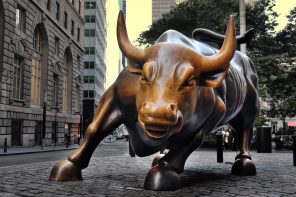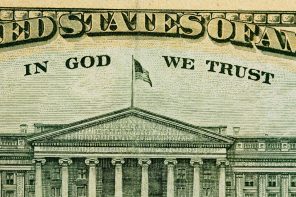In the trendy Trastevere district of Rome, the American-based John Cabot University sponsored an impressive three-day conference on Critical Theory, one entitled “Images of a Demystified World.” Truly international, boasting scholars and presenters from four continents, it has been a provocative and engaging forum for thinking about global problems—from religion and violence, war and peace, terror and torture, to the future of global capital—in a more authentically global way. The main thinkers under discussion here are not household names in the US, though they should be (many of them spent formative years during the War in the US). Theodor Adorno, Max Horkheimer, Herbert Marcuse, Walter Benjamin… all of them saw similar-seeming political and economic crises in Europe between the wars, and all reflected deeply on various strategies for resistance and for radical social change.
Some of them remained hopeful in the face of despair.
All of them viewed art as one critical human resource in the face of crisis and despair.
In a brilliant paper entitled “Tragedy or Trauerspiel?” Andrew Cutrofello of Loyola University Chicago turned to one preeminent art-form, tragedy, and to one preeminent tragedian, William Shakespeare. The lecture hinged on Hamlet’s poignant question, itself born of despair: “To be or not to be? That is the question.” Hamlet’s question is part of a long meditation on the value of human life, and the ethical question of whether it would be best for him to kill his father-in-law in revenge, or to take his own life and thus escape the prison that was Denmark (and, so it seemed, the world). So the play seems an incredibly contemporary meditation on the ethical dilemmas of how (and how not) to engage in a “war on terror.”
But then the philosopher took Hamlet’s question in an entirely unexpected direction. He went back to the beginning of the play, back to Hamlet’s encounter with a ghost. To be Modern, the philosopher suggested, is no longer to believe in ghosts. Descartes’s entire philosophy of doubt was intended as an elaborate exercise in philosophical exorcism. And Modern science was grounded both in a naturalism and an empiricism that seems to leave no room for ghosts. In the empirical world, what you see is what you get, and you do not ever really see a ghost.
Yet if we substitute the word ‘specter’ for ‘ghost’, then the whole problem of the Modern age appears in a new light. The late French philosopher, Jacques Derrida, published a book with the provocative title, Specters of Marx. And it is Karl Marx, of all people, who seems to be the last philosopher to see the problem of ghosts as the real problem lying at the heart of Hamlet’s despair.
How so?
Because Modern capitalism depends upon specters and ghosts. It hinges on the belief in a kind of value you cannot see. Surplus value. Once upon a time, Marx reminds us, such “surplus value” was determined primarily by human labor: the block of wood is worth so much more when a human artisan cuts and sands it into a cabinet, or an artist forms in into a statue. The labor added to the material increases the value of the material object.
In Late capitalism, however, surplus value moves, Wizard-of-Oz-like, behind the curtain. We can no longer see how value is increased, nor by whom. In addition a new kind of value comes into play: exchange value. Quite suddenly, everyone and everything can be traded as well as bought or sold.
In the stock or real estate markets, value increases as if by magic. There is no laborer or artist creating surplus value; there is, at most, the specter of the Market—imagined as a body with a circulation, and a personality with psychological needs and anxieties and melancholy, as well with what Adam Smith famously called an “invisible hand.”
So either our world is no longer Modern, or else the Modern world never really got rid of the ghosts. For specters abound in the contemporary world, and they are every bit as terrifying as Hamlet’s were. Think of the invisible, ghostly threat of “terror”; think of the terrifying specter of one’s life’s savings vanished in an instant.
Where such specters thrive, suicide becomes a more urgent and pressing question than ever it was in Hamlet’s day. Suicide may now be enlisted in the service of a religious cause. Or it may be the ultimate act of despair, most dramatically, the despair precipitated by the Wall Street shamans who administer our strange concourse with capitalism’s ownmost specters and demons.
In a world where value and surplus are equally invisible, it becomes all-too-easy for those like Bernard Madoff to pretend to create value, as if by magic. And when the house of cards crumbles, as it inevitably it must, then it is not Mr. Madoff, but rather his long-suffering friends, who are put to pose Hamlet’s anguished question anew.




